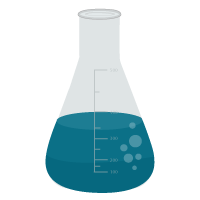DK / EN

Abdominal cancers, for example ovarian cancer and gastrointestinal cancers, with carcinomatosis presents a poor diagnosis for patients. One treatment has gained ground (the HIPEC treatment), where a chemotherapeutic agent is administered directly into the abdominal cavity. This treatment is an alternative to traditional chemotherapy which is administered through the patient’s blood vessels.
“One aspect we need, however, is to study the local concentrations of the chemotherapeutic agents in the organ tissue; how deep into the organs the chemotherapy penetrates and how the local tissue responds to the chemotherapy. Today, the use of the HIPEC treatment is mainly based on clinical experience,” says Maiken Stilling, Professor, Consultant, PhD, Orthopedic Research Laboratory, Aarhus University Hospital.
According to Maiken Stilling, the reason for the lack of knowledge is that satisfactory ways to measure the concentration of the chemotherapeutic agent in the organs are non-existent so far. Without this knowledge, the procedure cannot be optimized, hence the treatment offered to the patients is not advancing beyond the present state.
“We will apply the pharmacological technique, microdialysis, to collect concentrations of the chemotherapeutic agent in the abdominal organs and biological markers as part of the HIPEC procedure. As far as we know this approach has not previously been applied in connection with HIPEC treatment,” adds Maiken Stilling.
To perform microdialysis, a small catheter is inserted into the relevant organ. This makes it possible to extract samples regularly.
”We will apply the microdialysis method on pigs and use HIPEC devices and procedures equivalent to those used in humans. This will allow us to determine the local chemotherapeutic drug concentration. Using this approach, we will acquire knowledge about the organ penetration depth and distribution of the chemotherapeutic agent during treatment, and about the local tissue reaction during and after the HIPEC treatment with the chemotherapeutic agent carboplatin. This study is the first of its kind and the purpose is to help improve the HIPEC procedure,” says Maiken Stilling.